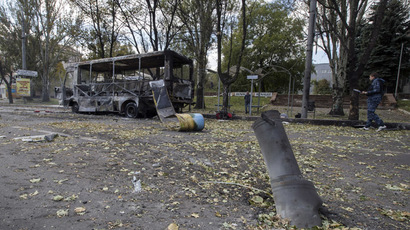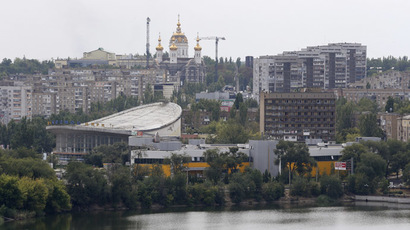War over? Both sides in Ukraine conflict sign treaty banning military action
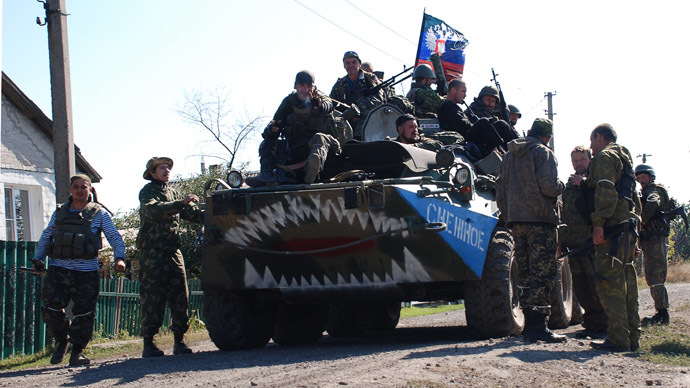
Kiev and self-defense forces signed a memorandum aimed at effectively halting all fighting in eastern Ukraine after talks in Minsk. It creates a buffer zone, demands a pullback of troops and mercenaries, and bans military aviation flybys over the area.
READ MORE: Obama declines to give Ukraine 'lethal aid' despite Poroshenko's plea
The signed memorandum consists of nine points, former Ukrainian president Leonid Kuchma told journalists following peace talks in Minsk, Belarus.
“The first [point] is to stop the use of weapons by both sides; the second is to stop all military and militia units in their positions as of September 19. The third is to ban the use of all types of weapons and offensive action,” former Ukrainian president Leonid Kuchma, who represents Ukraine at the talks, told journalists.
The agreement outlines a buffer zone of 30km free from heavy weapons and bans all military aircraft from flying over the rebel-controlled part of eastern Ukrainian territory. An exception is being made for the surveillance drones used by the OSCE to monitor the situation, Kuchma said.
Kiev said it would start the pull-back of heavy weapons under the agreement starting on Saturday.
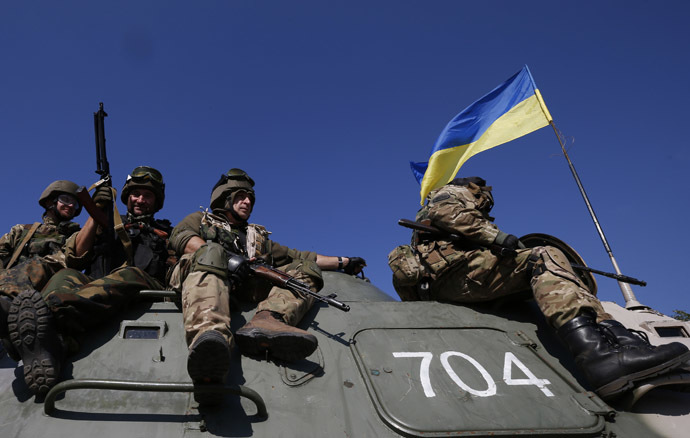
All foreign mercenaries must be withdrawn from eastern Ukraine by
both sides of the conflict, the signed Minsk memorandum states,
according to Kuchma.
“We have agreed on the withdrawal of all foreign mercenaries from
both sides,” Kuchma said.
Both sides also vowed to continue the exchange of prisoners.
The OSCE has been tasked to monitor that both sides adhere to the memorandum’s conditions. The organization’s observers will be sent to observe the situation along the entire zone of the ceasefire, Itar-Tass reported.
Five hundred OSCE observers will be sent to monitor the ceasefire in eastern Ukraine, Lugansk People’s Republic representative Aleksey Karyakin said, adding that the meeting was quite difficult.
“We were able to substantially increase the number of OSCE observers in the conflict zone from 300 to 500,” he said.
The negotiations were also attended by Russia’s OSCE representatives.
Kiev, rebels exchange prisoners
On Saturday, the self-defense forces of the People's Republic of Donetsk and Ukrainian security services exchanged prisoners in accordance with the “40 for 40” formula on Saturday.
The exchange took place near the village of Konstantinovka, situated 60 kilometers south of the city of Donetsk.
The third convoy of Russian humanitarian aid has also crossed the border into Ukraine, Itar-Tass reported. The convoy consists of around 200 vehicles carrying some 2,000 tons of aid to the residents of southeastern Ukraine – including cereals, canned food, generators, medicine, warm clothes, and bottled water.
Before the convoy’s departure, Ukrainian border guards had been repeatedly invited to inspect the cargo by the Russian side. However, the border patrol declined all offers without citing any particular reason.
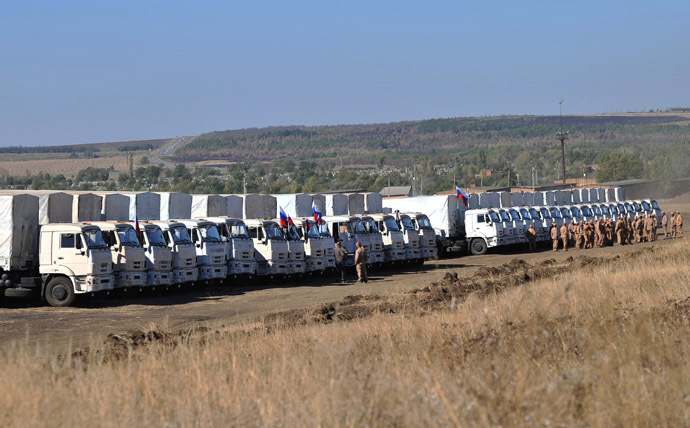
Meanwhile, the prime minister of the self-proclaimed Donetsk People’s Republic, Aleksandr Zakharchenko, declared that there will be “no Ukrainian election” in Donetsk, referring to one of the conditions set out in the September 5 Minsk protocol, which gave special status to the Donetsk and Lugansk regions, both located in eastern Ukraine.
Zakharchenko said he considers the special status as a declaration of independence of the self-proclaimed republics.
The memorandum follows a more general ceasefire agreement signed on September 5, which outlined a peace roadmap negotiated by Ukraine’s President Petro Poroshenko and representatives of the self-proclaimed republics of Donetsk and Lugansk.
READ MORE: Minsk protocol: Ukraine to be decentralized, special status for Lugansk, Donetsk
Despite the agreement, there have been numerous reports of truce violations since then. Both troops and anti-government fighters blame each other for sporadic shootings.
On Tuesday, the Ukrainian parliament approved laws on a special status for the Donetsk and Lugansk regions, as well as amnesty for those participating in the hostilities. Both points were originally outlined in the September 5 agreement.
READ MORE: Special status to E. Ukraine regions, amnesty to combatants - parliament
The law guarantees the right to use and study Russian or any other language in Ukraine. It also states that local elections are to take place in the regions on December 7.
The law will be valid for three years, but could be terminated in six months if order is not restored, according to the Ukrainian president’s advisor, Igor Gryniv.













